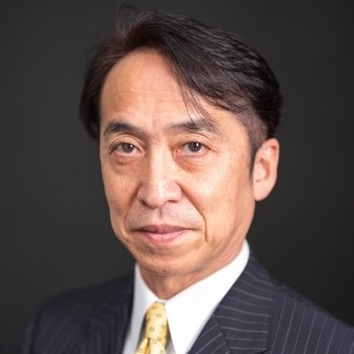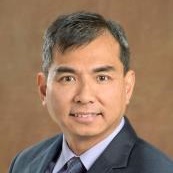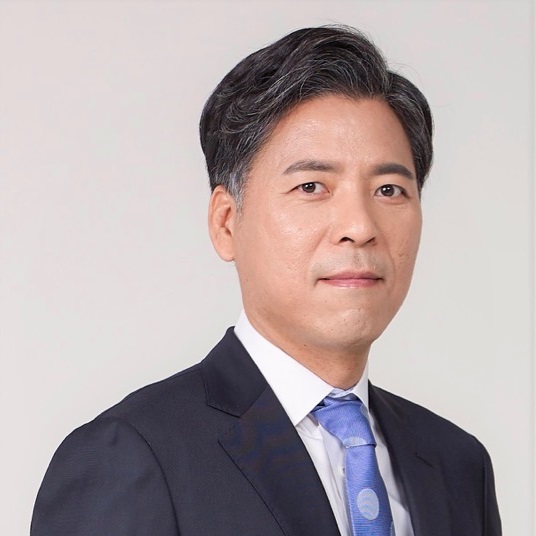
Prof. Makoto Iwasaki, Dr. Eng., IEEE Fellow, IEE Japan Fellow
Nagoya Institute of Technology, Japan
Speeh Title: GA-Based Optimization in Mechatronic Systems: System Identification and Controller Design
Makoto Iwasaki received the B.S., M.S., and Dr. Eng. degrees in electrical and computer engineering from Nagoya Institute of Technology, Nagoya, Japan, in 1986, 1988, and 1991, respectively. He is currently a Professor at the Department of Electrical and Mechanical Engineering, Nagoya Institute of Technology.
As professional contributions of the IEEE, he has participated in various organizing services, such as, a Co-Editors-in-Chief for IEEE Transactions on Industrial Electronics from 2016 to 2022, a Vice President for Planning and Development in term of 2018 to 2021, etc. He is IEEE fellow class 2015 for "contributions to fast and precise positioning in motion controller design".
He has received many academic, foundation, and government awards, like the Best Paper and Technical Awards of IEE Japan, the Nagamori Award, the Ichimura Prize, and the Commendation for Science and Technology by the Japanese Minister of Education, respectively. He is also a fellow of IEE Japan, and a member of Science Council of Japan.
His current research interests are the applications of control theories to linear/nonlinear modeling and precision positioning, through various collaborative research activities with industries.

Prof. Kin-Choong Yow
University of Regina, Canada
Speeh Title: Towards Interpretability and Explainability in Intelligent Systems
Kin-Choong Yow obtained his B.Eng (Elect) with 1st Class Honours from the National University of Singapore in 1993, and his Ph.D. from Cambridge University, UK in 1998. He joined the University of Regina in September 2018, where he is presently a Professor in the Faculty of Engineering and Applied Science. Prior to joining UofR, he was an Associate Professor in the Gwangju Institute of Science and Technology (GIST), Republic of Korea, (2013-2018), Professor at the Shenzhen Institutes of Advanced Technology (SIAT), P.R. China (2012-2013), and Associate Professor at the Nanyang Technological University (NTU), Singapore (1998-2013). In 1999-2005, he served as the Sub-Dean of Computer Engineering in NTU, and in 2006-2008, he served as the Associate Dean of Admissions in NTU.
Kin-Choong Yow’s research interest is in Artificial General Intelligence and Smart Environments. Artificial General Intelligence (AGI) is a higher form of Machine Intelligence (or Artificial Intelligence) where the intelligent agent (or machine) is able to successfully perform any intellectual task that a human being can. Kin-Choong Yow has published over 100 top quality international journal and conference papers, and he has served as reviewer for a number of premier journals and conferences, including the IEEE Wireless Communications and the IEEE Transactions on Education. He has been invited to give presentations at various scientific meetings and workshops, such as ACIRS, in 2018 and 2019; ICSPIC, in 2018; and ICATME, in 2021. He is the Editor-in-Chief of the Journal of Advances in Information Technology (JAIT), a Managing Editor of the International Journal of Information Technology (IntJIT), and a Guest Editor of MDPI Applied Sciences. He is also a member of APEGS and ACM, and a senior member with the IEEE.
His pioneering work in Mobile and Interactive Learning won the HP Philanthropy grant in 2003 for applying Mobile Technologies in a Learning Environment. Only 7 awards were given to the 21 Asia Pacific Countries who were invited, and his project was the only one from Singapore to win it. Also, in 2003, he was one of the only 2 Singaporeans to be awarded participation to the ASEAN Technology Program on Multi Robot Cooperation Development held in KAIST, Korea.
He was the winner of the NTU Excellence in Teaching Award 2005, and he won the Most Popular SCE Year 1 lecturer for 4 consecutive years 2004-2007. He has led numerous student teams to National and International victories such as the IEEE Computer Society International Design Competition (CSIDC) (2001), the Microsoft Imagine Cup (2002, 2003 and 2005), and the Wireless Challenge (2003).

Prof. Jongeun Choi, ASME Fellow, IEEE Member
Yonsei University, South Korea
Speeh Title: Data-Efficient Learning for Physical AI Systems
Prof. Jongeun Choi received his B.S. degree in Mechanical Design and Production Engineering from Yonsei University, Seoul, Republic of Korea, in 1998, and his M.S. and Ph.D. degrees in Mechanical Engineering from the University of California, Berkeley, in 2002 and 2006, respectively. He is currently a Professor at the School of Mechanical Engineering, Yonsei University, where he has also been affiliated with the Department of Artificial Intelligence since 2020. In 2023, he served as a visiting scholar at UC Berkeley. From 2019 to 2023, he served as the Chairperson of the Department of Vehicle Convergence Engineering, Yonsei University, funded by Hyundai Motor Company. He is also affiliated with the Department of Mobility Systems Engineering, funded by Hyundai Motor Company from 2023. Before joining Yonsei University, Dr. Choi was a faculty member at Michigan State University, where he worked as an Assistant Professor (2006–2012) and later as an Associate Professor (2012–2016) in the Departments of Mechanical Engineering and Electrical and Computer Engineering. His research interests include machine learning, systems and control, symmetry-aware learning, deep reinforcement learning, and Bayesian methods, with applications to robotics, autonomous driving, human-robot interaction, and AI in healthcare. He has been serving as a Senior Editor for the International Journal of Control, Automation, and Systems since 2023 and previously served as an Associate Editor for the IEEE Robotics and Automation Letters in 2018, the Journal of Dynamic Systems, Measurement, and Control (2014–2019), and the International Journal of Precision Engineering and Manufacturing (2017–2018). Dr. Choi has received several awards, including the Best Paper Award at the RSS 2023 Workshop on Symmetries in Robot Learning and the 12th International Conference on Ubiquitous Robots and Ambient Intelligence in 2015. His papers were finalists for the Best Student Paper Award at the 24th American Control Conference in 2005 and the Dynamic Systems and Control Conference in 2011 and 2012. He was also a recipient of the NSF CAREER Award in 2009. Dr. Choi is an ASME Fellow and a member of IEEE.